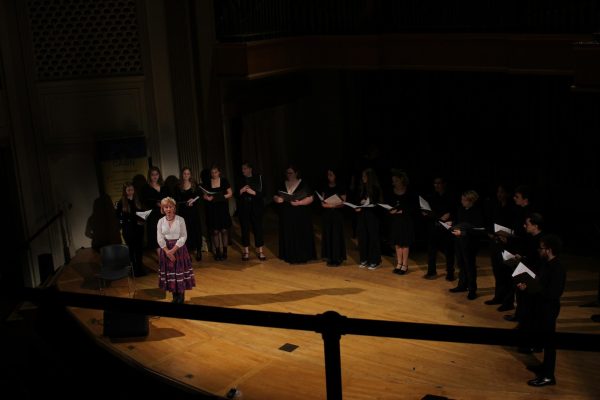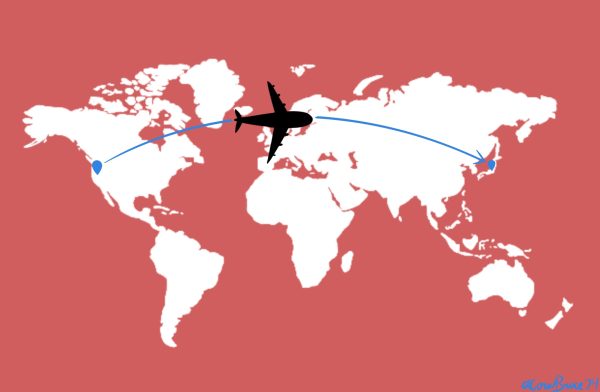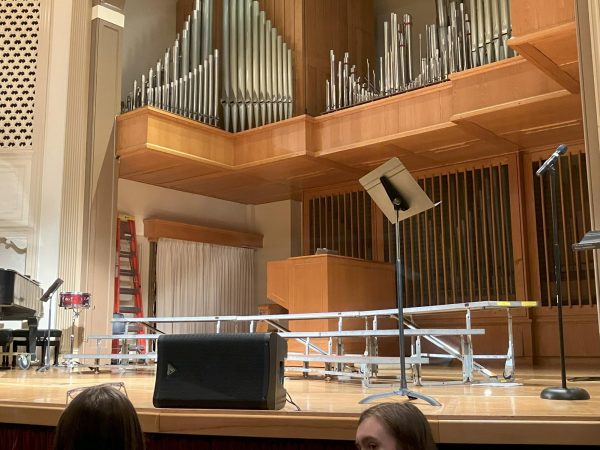Lecturer shares importance of nonproliferation
September 24, 2012
Chris Kessler, private consultant at Northraven Consulting LLC and professor at University of Washington Jackson School of International Studies, discusses why a world with no nuclear weapons would be difficult to maintain.
Joel Ray/Senior photographer
Nuclear nonproliferation is not a word most people use in everyday conversation. However, it was the topic of the night in the lecture by Chris Kessler on Sept. 19, in which the lessons learned from 35 years in war and the importance of 30 years of nonproliferation were emphasized.
Kessler, private consultant at Northraven Consulting LLC and professor at University of Washington Jackson School of International Studies, explained who proliferators are and why it matters, why states seek nuclear weapons and what global zero, a world without nuclear weapons, would mean for the world.
“Even if you think it’s something that shouldn’t be done, if it’s something that hasn’t been done and someone starts to do it, they’re proliferating,” Kessler said.
Proliferators around the world come from Iran, Iraq, India, Israel, France, Russia and the United States.
Kessler asked the audience to think about whether it is a question of who possesses nuclear weapons or if it is all about disturbances to international stability.
“The general argument is having this, getting this, seeking this weapon is a bad idea because it perturbs international stability,” Kessler said. “And international stability is a good thing. We don’t want more tension [and] conflict in the world.”
Good examples of where the breaking point around the world may be in today’s society include Libya and Egypt. Using places, such as these as examples, Kessler also explained how stability isn’t always a good thing.
“You’re always forced back into making value judgments of the context,” Kessler said.
In addition to explaining proliferation and whom proliferators around the world include, how states use nuclear weapons in national strategy was also a big topic within the lecture.
Often times, states use nuclear weapons for national security and international threats to balance power against other states. According to Kessler, having nuclear weapons also helps states to assert power and practice hegemony within the world.
Nuclear weapons can also be used for nuclear science engineering establishments and are often a symbol of status and state identity within some states.
Kessler went on to explain that North Korea is a good example of a state that uses nuclear weapons to both keep its military happy and protect itself against other countries.
Although nuclear weapons are a prominent part of societies around the world, Kessler explained how some states are beginning to express a desire for global zero: a world in which no nuclear weapons exist.
President Obama has also suggested that getting rid of all nuclear weapons will not happen in his lifetime, although this is a goal he wishes to accomplish one day.
Kessler went on to explain that because nuclear weapons have been made before, people will know that it will always be possible to make them again.
“A lot of people, including former secretaries of state, are arguing that we should get rid of all nuclear weapons in the world,” Kessler said. “But my questions is what’s going to be harder: getting there or staying there?”
Samantha Sigler
News Editor










